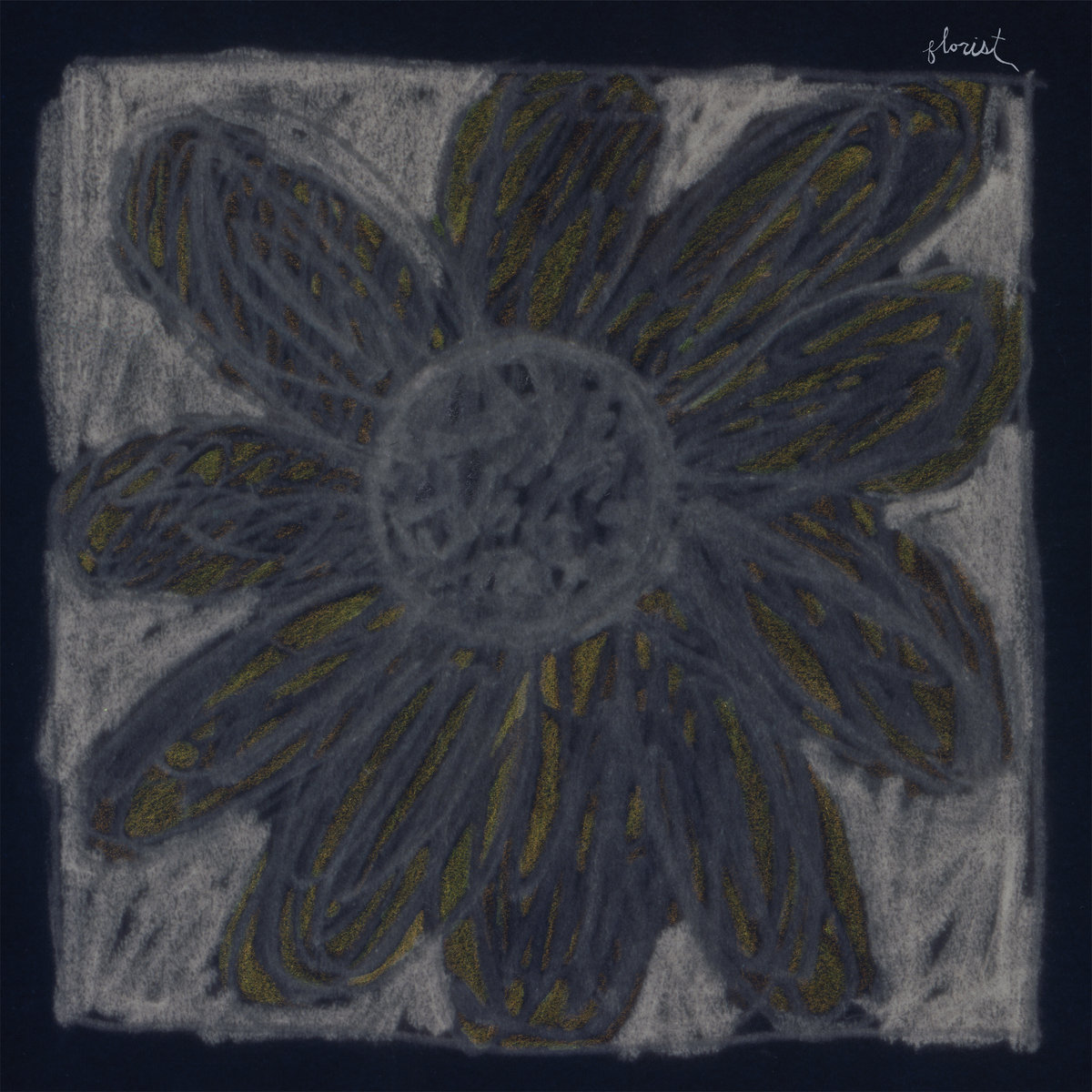Florist
Florist
DOUBLE DOUBLE WHAMMY
ABOVE THE CURRENT
The question of whether albums should be taken as a collection of individual songs or some kind of comprehensive statement is one we can engage in until our faces turn blue. It’s a purely academic debate, of course, as we all know albums are going to be chopped up, playlisted, and partitioned out bit by bit regardless of any sort of explicit artistic intent. And yet, there comes along something like Florist’s new self-titled record, an album presenting its own unique argument for the utility and purpose of a great cohesive statement.
Florist, made up of singer/songwriter Emily Sprague, Jonnie Baker, Rick Spataro, and Felix Walworth, have come together to create something so specific, so grounded in time and place, so weathered and worn, as to defy the binary of the argument between songs versus albums. It’s less a rounded statement than an audio documentary; charming folk songs next to improvisational instrumentals, haunted ballads accompanying rain-soaked duets, thoughtful and nuanced arrangements interrupted by the chirp of crickets. Florist is as close as an album can come to a kind of VR experience: alive, fluid, breathing in an artform that typically feels far more passive. For Florist, perfection doesn’t seem to be the objective, but from time to time this self-titled LP finds its way there anyway.
To say this is Florist’s fourth record is both technically true and a little misleading, especially when you consider that many listeners were first introduced to Florist around the time of their last record, the quite literally titled Emily Alone. “We called it Florist because this is not just my songs with a backing band,” Sprague explained in the album’s press materials for her first fully collaborative project under the moniker. “These are my best friends and the music is the way that it is because of that.” And this isn’t just lip service. Everyone’s voice is present on this album, both literally as vocalists and as pieces of the whole. Plenty of bands have done the whole “live together for a month in a cabin,” but few have been able to so effectively convey what that actually must feel like. They didn’t just use the wide-open natural spaces, humid front porch, and lazy moments in between recordings to inspire the record—those moments are the record.
This all serves to make Florist very much a lean-back album, one that dissolves into you as you wash the dishes or scroll through Twitter or make coffee; one where it might take a half dozen listens to remember a single track. Which, again, seems fine with its creators. It’s maturity that allows you to accept what a song is and what it isn’t, but it’s confidence as well. Hell, Florist opens with a warped, hovering, three-minute throat-clearer simply called “June 9th Nighttime,” as if existing as a placeholder title rather than a hypnotizing invitation. Your mileage may vary with these instrumental excursions—only nine of the 19 songs on Florist contain vocals—but there are so many albums that would benefit if they were willing to take a minute to let things breathe rather than barreling furiously forward.
Perhaps I’m burying the lede here. If I am, I’m only following the example of Florists’ creative linchpin. The lead up to this record saw Sprague deflect whenever possible, highlighting this as Florist-the-collective and not Florist-the-solo-moniker, but it becomes pretty difficult to ignore what Sprague is doing here. The current field of quiet, tempered indie folk is not exactly a barren one, but there's something entrancing about the way Sprague can weave her way through a composition, finding melodic flourishes within the framework of almost every track.
Her voice, too, has never sounded more assured. Just as the record as a whole invites us into its world, so too does an individual song like “Red Bird Pt. 2 (Morning).” Memory can be a lonely thing, but Sprague finds a way, through the gradual accumulation of details, to allow us a way in. There’s still something solitary about the song, and the way her voice sounds within it, but it’s more that distinct and paradoxical feeling of being alone with someone else rather than being truly lonely. Emily Alone might have given us Sprague at her most austere, but it’s clear from Florist that even among a supremely talented band of collaborators, she’s the undisputed focal point.







